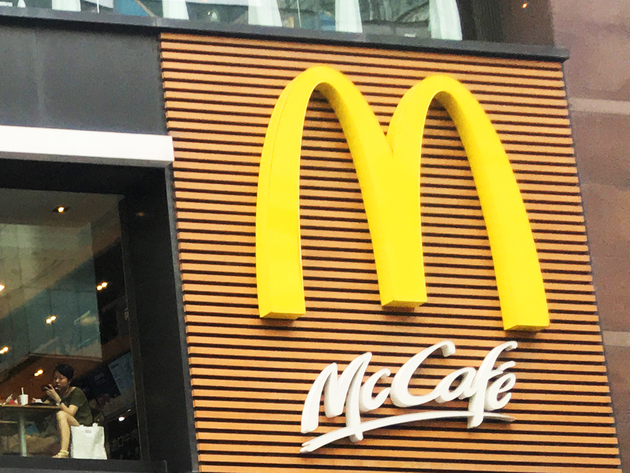
Photo/Ren Zhini
Oct. 12 (NBD) – McDonald's in-house coffee brand McCafé launched a delivery service in Shanghai on Monday, entering competition with American coffee giant Starbucks and domestic startup Luckin Coffee.
The new service allows customers to make orders via iMcCafé Delivery mini program on WeChat or via takeaway ordering platforms Ele.com and Meituan-Dianping, with delivery to be completed by SF Express, a leading courier company in China, in 28 minutes.
The service is currently only available in Shanghai, but will be introduced to other cities in the future, according to the mini program.
McDonald's had shared similar reservations with Starbucks about coffee delivery: lengthy delivery time could affect the taste, and the service generates only moderate profit.
What prompts McDonald's to enter this area, analyst of China's food industry Zhu Danpeng told NBD, is first of all the booming coffee market brought by a new generation of consumers. Besides, the coffee chain wishes to strengthen the connection with the new-generation consumers.
McDonald's has been running business in China for decades, and its supply chain, distribution system, service standards and store layout will give it great advantages in the coffee delivery race, Zhu added.
The coffee market in China is hotter than ever.
Eye-catching coffee startup Luckin Coffee has opened over 500 stores within around half a year. In August, Starbucks achieved strategic cooperation with tech giant Alibaba to introduce delivery service.
According to Insight into China's Coffee Industry 2018, a report released by enterprise data aggregator CBNData, China's coffee consumption is increasing by 15 percent annually. The country's coffee market is expected to reach 300 billion yuan (43.4 billion U.S. dollars) by 2020, and to 1 trillion yuan (144.7 U.S. dollars) by 2025.
However, China's annual coffee consumption per capita is a meager 0.03 kg, only 2.4 percent of the global average. This indicates that a popular coffee culture is still lacking in China.
Wang Zhendong, chairman of consultancy firm Shanghai Feiyue Investment Management Co., Ltd., told NBD that the habit of coffee-drinking only prevails in the Yangtze River Delta region of China. With so many brands swarming into the Chinese coffee market at the same time, the competition is set to be increasingly fierce.
All these three brands are facing their own issues at present.
According to reports, Starbucks suffered a dip in sales in September. Luckin Coffee, which depends largely on cash-burning expansion, is facing a challenge in increasing customer stickiness.
As for McDonald's, Wang told NBD that only the overlapping group of fast-food and coffee consumers might be keenly interested in McCafe, as other consumers may feel reluctant to buy coffee from a brand linked to a fast-food store.


 川公网安备 51019002001991号
川公网安备 51019002001991号





